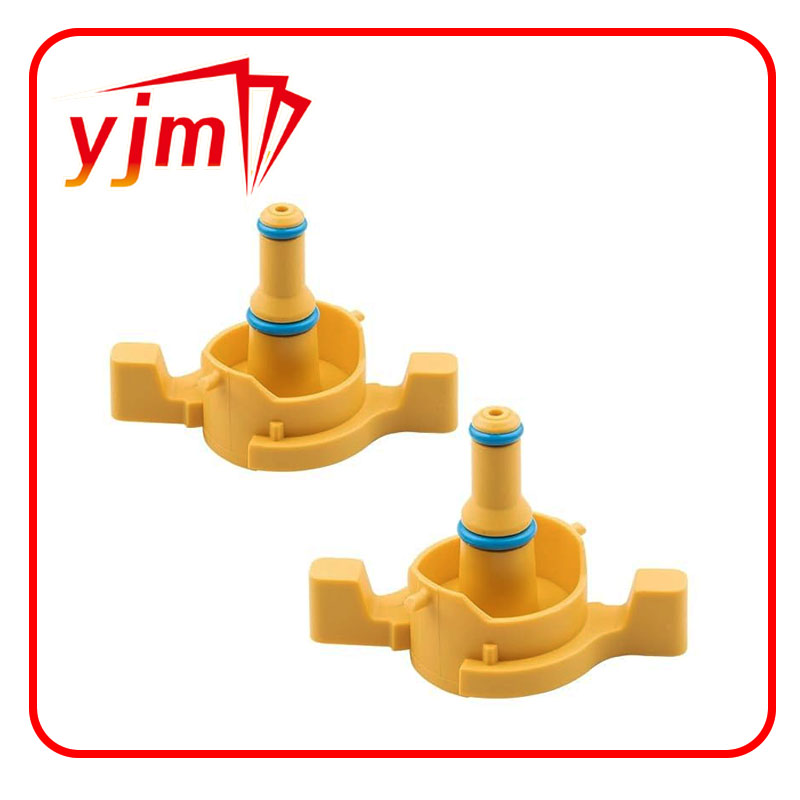oil seal for rotating shaft
Understanding Oil Seals for Rotating Shafts Importance, Functionality, and Applications
Oil seals, also known as rotary shaft seals or lip seals, are essential components in various mechanical systems where rotating shafts are present. They play a crucial role in ensuring the smooth operation and longevity of machinery by preventing the leakage of lubricants and the ingress of contaminants. In this article, we will explore the importance of oil seals, how they function, and their applications in different industries.
The Importance of Oil Seals
Oil seals are vital in maintaining the integrity of mechanical systems. In rotating machinery, such as motors, pumps, and gearboxes, lubrication is necessary to reduce friction and wear between moving parts. However, without effective sealing, oil can leak out, leading to inadequate lubrication and increased wear, potentially resulting in system failure.
Furthermore, external contaminants such as dirt, dust, and moisture can enter the system through gaps around rotating shafts. These contaminants can cause significant damage to internal components, leading to premature wear and failure. Oil seals act as barriers, ensuring that lubricants remain contained while keeping harmful substances at bay.
How Oil Seals Work
The basic design of an oil seal consists of a rubber or elastomeric lip that presses against the rotating shaft. The lip's design is crucial; it must be flexible enough to conform to the shaft’s surface while maintaining a tight seal to prevent oil from escaping and contaminants from entering.
When the shaft rotates, the seal lip experiences both dynamic and static pressures. Effective oil seals are designed to withstand these forces while maintaining a proper sealing condition. The contact between the lip and the shaft creates a thin film of oil, which can enhance sealing performance and reduce wear on the seal itself.
In addition to the sealing lip, oil seals often include additional features such as a metal casing for structural support and spring-loaded designs that help to maintain the necessary contact pressure against the shaft. This ensures that the seal performs effectively under various operating conditions, including temperature fluctuations and changes in pressure.
Types of Oil Seals
oil seal for rotating shaft

Oil seals come in various types and designs, each tailored to specific applications and environments. Here are some common types
1. Single Lip Seals These are the most basic form of oil seals, consisting of a single sealing lip. They are effective in many applications but may not provide complete protection against external contaminants.
2. Double Lip Seals Featuring two sealing lips, these seals provide enhanced protection against contamination and can better contain lubricants within the system. They are commonly used in applications where exposure to dirt and moisture is a concern.
3. V-Ring Seals These seals are particularly suited for rotating shafts where space is limited. They can accommodate slight misalignment and provide effective sealing in applications with axial movement.
4. U-Cup Seals Constructed in a U-shape, these seals are often used in hydraulic applications. They can handle higher pressures and provide exceptional sealing performance.
Applications of Oil Seals
Oil seals find applications across various industries, including automotive, aerospace, manufacturing, and more. In automotive applications, they are commonly used in engine components, transmission systems, and wheel bearings to prevent oil leaks and protect against dirt.
In industrial machinery, oil seals are critical in ensuring the reliability of pumps, compressors, and conveyors by safeguarding against oil loss and contamination. Similarly, in agricultural equipment, oil seals help maintain performance and reduce maintenance costs by preventing lubricant loss.
Conclusion
In summary, oil seals for rotating shafts are indispensable components in modern mechanical systems. They ensure efficient operation by retaining lubricants and safeguarding against contamination, ultimately enhancing the reliability and lifespan of equipment. Understanding the importance, functionality, and various applications of oil seals can aid in selecting the right seal for specific operational requirements and contribute to more effective maintenance practices in diverse industries.
-
Understanding the Front Main Engine Seal: Purpose, Maintenance, and Installation
News Jul.29,2025
-
Understanding O-Rings and Seal Rings: Types, Applications, and Custom Solutions
News Jul.29,2025
-
Understanding Crankshaft Oil Seals: Rear Seals, Pulley Seals, and Their Role in Engine Integrity
News Jul.29,2025
-
The Importance of Front and Rear Crankshaft Seals in Engine Performance and Oil Management
News Jul.29,2025
-
Crank Oil Seals: Functions, Types, and Cost Considerations in Engine Maintenance
News Jul.29,2025
-
A Comprehensive Guide to O-Rings and Seals: Types, Materials, and Global Applications
News Jul.29,2025
-
Mastering Diesel and Performance Engine Maintenance: A Guide to Critical Oil Gaskets
News Jul.28,2025
Products categories















